December 17, 2012
The War On, For, or About Christmas
by Akim Reinhardt
 I have very fond memories from the 1990s of listening to a friend's Gujarati Indian immigrant family butcher Christmas carols.
I have very fond memories from the 1990s of listening to a friend's Gujarati Indian immigrant family butcher Christmas carols.
It
was an annual Christmas Eve tradition for these religious Hindus. Each
year, with women on one side of the room and men on the other, the
genders separated by the large, decorated tree, they joyously worked
their way through about a half-dozen classics. Sometimes they sang in
unison, and sometimes they traded parts while they consulted xeroxed
lyric sheets. When it came to "Deck the Halls," everyone always got a
chuckle out of the men warbling "Fa la la la, La la la la!"
For me, an American Jew then in my mid-20s, it was a liberating experience.
Christmas
might not be everyone's favorite holiday, but there's no denying that
here in the United States, it is THE holiday. None of the others can
really compete. It is front and center in the cultural consciousness
for no less then a month, beginning its inexorable, swelling crescendo
the minute Thanksgiving ends in late November.
The din of
Christmas music, a parade of TV specials, holiday parties one after the next,
wrangling a tree, shopping for gifts, writing and reading year-in-review
cards from friends and family, and a dozen other tasks and signposts:
the United States is consumed by Christmas for roughly four weeks every
year. And it doesn't even end on the 26th. Rather, that merely kicks
off a week's worth of giddy de-escalation, the Christmas season not
finally relinquishing its hold on society until the New
Year's arrival.
If you have overwrought memories of and expectations for
Christmas, it can be quite stressful. If you've become jaded about the
holiday's commercialism and relentlessness, it can be incessantly
annoying. But if you're Jewish, and thus imbued from an early age with a
uniquely difficult relationship to Christianity, then it can be
downright oppressive and wrought with the a deep sense of inner conflict
that tears at you from every direction.
To be Jewish, at least
in my experience, is in some ways to feel like a victim of elder abuse.
It is to know that Judaism is directly responsible for Christianity.
We spawned it way back when. But as that child grew to maturity, it far
surpassed us in size and popularity, aggressively claiming countless
millions of converts. And along the way, it turn

ed violent towards us.
Crusades, inquisitions, pogroms, the Holocaust. Century after century,
Christians fomented and manifested their weird love-hate relationship
with us. They rape, they pillage, they torture, they kill, but they
can't let us go. Because in the end, they know they are of us. Because
Jesus himself was a fucking Jew. It seems almost Oedipal.
And
for Jews? To live in the Americas or Europe is to be swallowed up
whole, to live forever in the presence of that gargantuan spawn,
carrying the burden of centuries of vicious abuse, unable to escape the
overbearing presence of Christianity. And it's to be trapped by a
nagging sense that this broken relationship is eternal. To forever
wonder, even if it's only in the back of your mind, when the abuser
might lash out again.
Or at least that's how it felt for me
growing up in the Bronx, the grandson of Eastern European Jewish
refugees who had gotten out just in time.
And I'm only half-Jewish.
The
worst of it wasn't drunken hooliganism spilling over from St. Paddy Day parades, or the
specter of ultimate blame that shades the pastels of Easter.
No, the worst of it was typically at Christmas. Because that's when
fear and resentment transformed into envy.
Goddamn if those
Gentiles didn't seem like they were having the time of their lives. All
of a sudden everyone was in such a good mood, doing nice things for
each other, extending holiday greetings, and sharing moments of real,
heart-felt sincerity. Christians, even relative strangers, have a way
of looking in each other's eyes during the Christmas season and saying
just the nicest things in the world and seeming to really, really mean
them.
Were these actually the same people calling me
"Christ-killer," who used "Jew" as a synonym for "cheap," or who in a
fit of rage on the playground screeched "Hilter was right!"
But their seasonal kindness and fraternity wasn't merely enough to make me forgive. It also made me jealous.
Jews
were never this nice to each other. Not in my experience anyway.
Plenty nice, sure, yeah. But there was no equal sense of love for your
fellow man, perhaps because we were each expected to pledge our loyalty
to the tribe. There was certainly no religious experience as
cathartically loving as Christmas. Passover is a wonderful time for
families, but its spirit is more akin to the 1969 New York Mets baseball
team (the ultimate underdogs) winning the World Series than it is about  unconditional love. And when we got together to really mean something
on Yom Kippur, it was about bowing down and asking God to forgive us for
our sins. Of course it was really great of God to do that for us, but
what did we actually do for each other?
unconditional love. And when we got together to really mean something
on Yom Kippur, it was about bowing down and asking God to forgive us for
our sins. Of course it was really great of God to do that for us, but
what did we actually do for each other?
More than anything, I
wanted to partake in the brotherhood of Peace on Earth and Goodwill
towards Men. I wanted to look someone in the eye, shake their hand, and
exchange that depth of love.
And of course there were the gifts. They start with a
decorated Christmas tree, that coniferous shrine of positive
reciprocity, which is certainly one of the coolest things in and of itself in
the eyes of a child. But the gifts themselves? For a pre-pubescent, the orgy of
Christmas gifts is about as close as you get to sex.
Consequently, to be an
American Jew is to be surrounded by Christian discomfort for 11 months,
only to be submerged into a pool of Christmastime envy during the
twelfth.
Really, it's a bit much.
For many American Jews,
all that torment and envy has created a desire to compete. And the
result has been the transformation of a relatively minor holiday,
Chanukah, into something that attempts, but fails miserably, to ape
Christmas. Here in the United States, every Jewish child is intimately
familiar with the desire and pressure to have Chanukah vie with the
distinctly American version of Christmas.
But Chanukah is a very poor substitute for Christmas.
Because
the Jewish calendar is an adjusted lunar model with a leap month, the
sprawling eight days of Chanukah almost always take place in December,
and tend to overlap with Christmas about every third year or so. This
simple coincidence of timing has elevated its importance for many
American Jews, placing it in the untenable position of trying to compete
with THE American holiday.
I remember, when I was young,
checking the calendar some time during the fall, when distant rumblings
of Christmas could first be felt. I hoped to find that this would be one of
those years when we had an excuse to be festive when everyone
else was. But even when the stars aligned, it was not enough. Indeed,
in some ways it merely underscored how inadequate Chanukah, the
"Festival of Lights," was when compared directly to Noel.
For
starters, a menorah is no Christmas tree, and only a burgeoning
pyromaniac could find approximate joy in one. Latkes, Jewish potato
pancakes that are the dish of the season, are good. But they pale in
comparison to the candy canes, sprinkled cookies, gingerbread houses,
and whatever the fuck else sugar plum fairy bullshit people cram
in their mouths this time of year. And while teaching a child to spin a
dreidel is a good way to help him or her develop a gambling habit, the
few coins or minor trinkets he or she might earn along  the way can't
hold a candle to Christmas gifts.
the way can't
hold a candle to Christmas gifts.
God damn those gifts.
Historically,
Chanukah has had little of anything to do with gift-giving. But in a
failed attempt to compete with Christmas, in a vain effort to keep their
children from feeling inadequate as their goyishe classmates drown in
wrapping paper, Jewish parents often give their children some gifts
during Chanukah.
It's like offering a teenager a virgin colada while all the adults are drinking wine and cocktails at a wedding.
For
me, the pleasures of Christmas as a child were not completely foreign
because I am a half-breed. My father was raised Lutheran. While his family was in far off California, my mother's was
close by, so the Jewish influence was much greater, and I was raised Jewish, from Bris to Bar Mitzvah. At the same time, both of my parents were skeptical of organized religion and the
gross commercialism of every holiday, from Christmas on down to Mother's
and Father's day. But they weren't exactly heartless ideologs.
We
always celebrated one or the other, either Christmas or Chanukah, some years both. Either way, we exchanged a few relatively
modest gifts. And though it was usually Chanukah at the fore, there
were a few years in which we had trees. There was a small, silvery
aluminum thing for a while. Once it started to shed, my mother tossed
it. We even had a couple of actual pines until my kid sister was born;
it turns out she was allergic to them. Gave her asthma.
I
mention this merely to illustrate that I was not raised in a restrictive
Jewish household, and that I was not a complete outsider looking in. I
was from a mixed family living in a mixed (Jewish and Irish)
neighborhood in the Bronx. My envy of Christmas was not the hopeless
yearning of some Dickensian street urchin, wind-burnt face pressed up
against the glass, watching wealthier folk feast on braised goose and
baked ham. Rather, I was Jewish enough to not feel any real kinship to
Christmas, but enough of a goy to have some semblance of what it
actually was. And that, no doubt, shaped my envy.
As I got older, my unrequited love for Christmas
began to ease. Drifting into atheism helped. While I've always held
onto my half-breed Jewish ethnicity, leaving God behind washed from me much
o f the sectarian competition that is so rife among adherents of the
major Western religions. There's something about their exclusivism and
genealogy that make their relationships especially rivlarous.
It seems rather distant and silly to me now.
f the sectarian competition that is so rife among adherents of the
major Western religions. There's something about their exclusivism and
genealogy that make their relationships especially rivlarous.
It seems rather distant and silly to me now.
By my late teens and
early 20s, Christmas was something I got good at ignoring to some
extent. It was that day when all the stores were closed. It was a good
day to see a movie and grab some Chinese food. You know, before all
the gentiles also began to realize that this is actually a good way to
spend a day off, especially after you've been cooped up with your family
for far too long. But now you can't go near a theater on December
25th.
Tragic, really.
However, spending several
Christmases with my Gujarati friend's family was a real turning point.
Because it helped crystalize for me the difference between the ancient
Christian holiday that celebrates the birth of Jesus, and the secular
American holiday that doesn't have a damn thing to do with Jesus.
Three
generations' worth of Indian immigrants and their progeny would
decorate a tree, wrap and exchange gifts, and even sing overtly
religious songs like "Oh Holy Night." They were Hindus. Not only
weren't they Christian, a number of them didn't even really know all
that much about Christian theology. Yet there they were, not only
"doing" Christmas, and not being threatened by it at all. Hell, they were enjoying it as much as the next guy.
The
War on Christmas agitators, especially the propagandists in big-time
right-wing media like Fox News and Rush Limbaugh, are largely full of
shit of course. Christmas dominates American culture during the entire
month of December and almost everybody celebrates in one way or another,
including millions of non-Christians.
But the religious
Christians who complain that one of their most sacred holidays has been
exploited and debased by commerce and secularization? The folks who
rail against "Xmas," decrying the removal of "Christ" from "Christmas?"
I think they're absolutely right.
 For
many Americans, Santa Clause is a more pivotal Christmas figure than
Jesus. Elves and reindeer supplant angels and wise men. "Jingle Bell
Rock" and "Winter Wonderland" are far more popular than "O Tannenbaum"
or "Oh Holy Night." And countless millions of Americans spend Christmas
Eve opening gifts (or wrapping them at the last minute) instead of going
to church.
For
many Americans, Santa Clause is a more pivotal Christmas figure than
Jesus. Elves and reindeer supplant angels and wise men. "Jingle Bell
Rock" and "Winter Wonderland" are far more popular than "O Tannenbaum"
or "Oh Holy Night." And countless millions of Americans spend Christmas
Eve opening gifts (or wrapping them at the last minute) instead of going
to church.
In other words, my Indian friends weren't singing the praises of Christ's birth because they were about to convert. Rather, they were taking Christmas and making their own. They were turning something ostensibly Christian into something that was decidedly un-Christian.
Of course many Americans comfortably overlap the religious and
secular incarnations of Christmas, finding ways to
accommodate both the generalized seasonal festivities and sincere Christian devotion.
But in a way, making room for both only reinforces the necessity of faith and
devotion to co-exist with popular culture in the 21st century West, and particularly here in the United States.
Because in a nation where citizenship is
based on a political ideal instead of an ethnicity, and where where
national ethnicity itself, "American-ness," is an incredibly dynamic
and flexible thing, celebrating the secular, pop-culture version of
Christmas is a fast track to actually being accepted. It's a harmless
(though potentially expensive) form of assimilation.
That's
what my Gujarati friends understood. Celebrating the birth of Christ is
a way to be Christian. But decorating a tree, eating gingerbread
cookies, exchanging gifts, and even singing "Fa La La," is way to be
American.
I no longer harbor dark resentments or glowing envy for
Christmas. Rather, I've come to embrace its secular form, though only partially. I still don't bother with a tree; it seems like too much trouble. And I can also call on my
Jewish roots and my inherited opposition to commercialism to avoid all that gifting. I don't actually like giving or
receiving gifts; I never know what to get anyone, and receiving gifts
makes me uncomfortable.
Maybe I should speak to someone about that.
Regardless, I have found a way to partake in Christmas to some degree, and
in the process, to share in the warmth and fellowship I always found so
appealing.
Each Christmas Eve, an old friend and three
generations of his small but energetic family host dinner and drinks a
tavern in the Washington Heights section of northern Manhattan. He
invites friends, and typically anywhere from a dozen to twenty people
show up. I've been going for about 15 years now. It's a time to
reconnect, break bread, toast, and revel in the glow of the Christmas
season.
This weekend I'll drive from Baltimore to New York City,
and on Monday night, once again I'll be at Coogan's on W. 168th street.
I'll be back home, among friends, on Christmas. And this half-breed atheist Jew will be happy.
In that spirit, I wish you all a Merry Christmas.
Fa La La La La!
--
Akim Reinhardt blogs regularly at The Public Professor. If you visit his site and like something you see or read, feel free to leave nice comments. But Please. No gifts.
Posted by Akim Reinhardt at 12:30 AM | Permalink

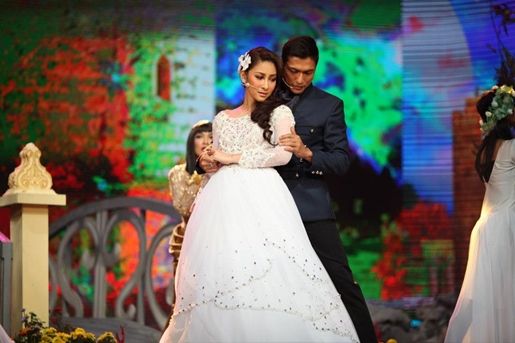
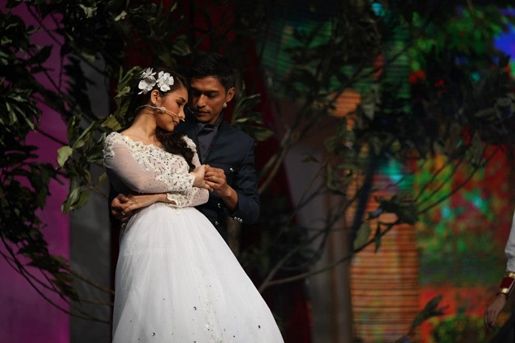
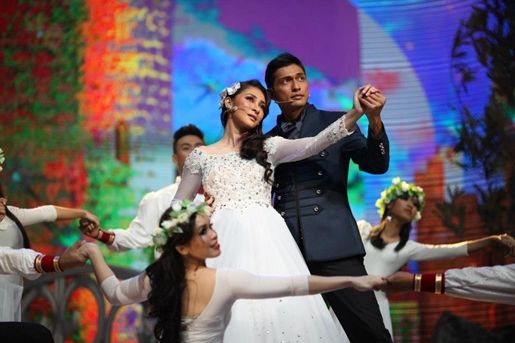
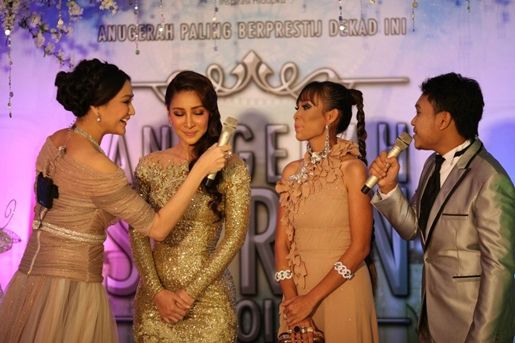
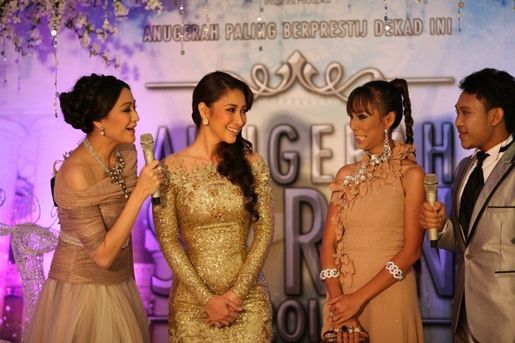
















x lawak